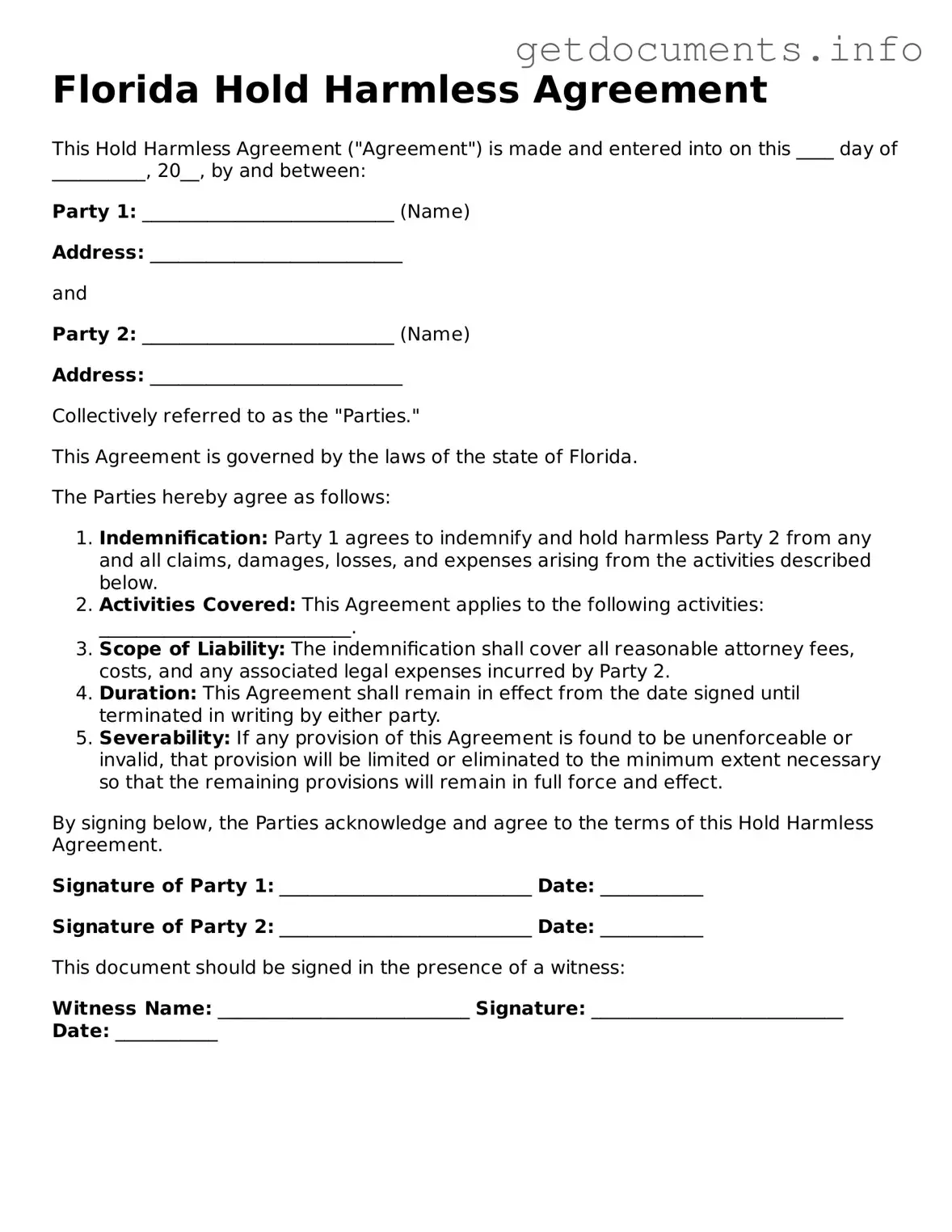Free Hold Harmless Agreement Template for Florida
A Florida Hold Harmless Agreement is a legal document designed to protect one party from liability for certain risks or damages that may occur during an activity or event. This agreement ensures that if an accident or injury happens, the other party agrees not to hold them responsible. Understanding and utilizing this form can provide peace of mind for both parties involved.
Ready to protect yourself and your interests? Fill out the Hold Harmless Agreement form by clicking the button below.
Access Hold Harmless Agreement Editor

Free Hold Harmless Agreement Template for Florida
Access Hold Harmless Agreement Editor
Got places to be? Complete the form fast
Fill out Hold Harmless Agreement online and avoid printing or scanning.
Access Hold Harmless Agreement Editor
or
⇩ PDF File
